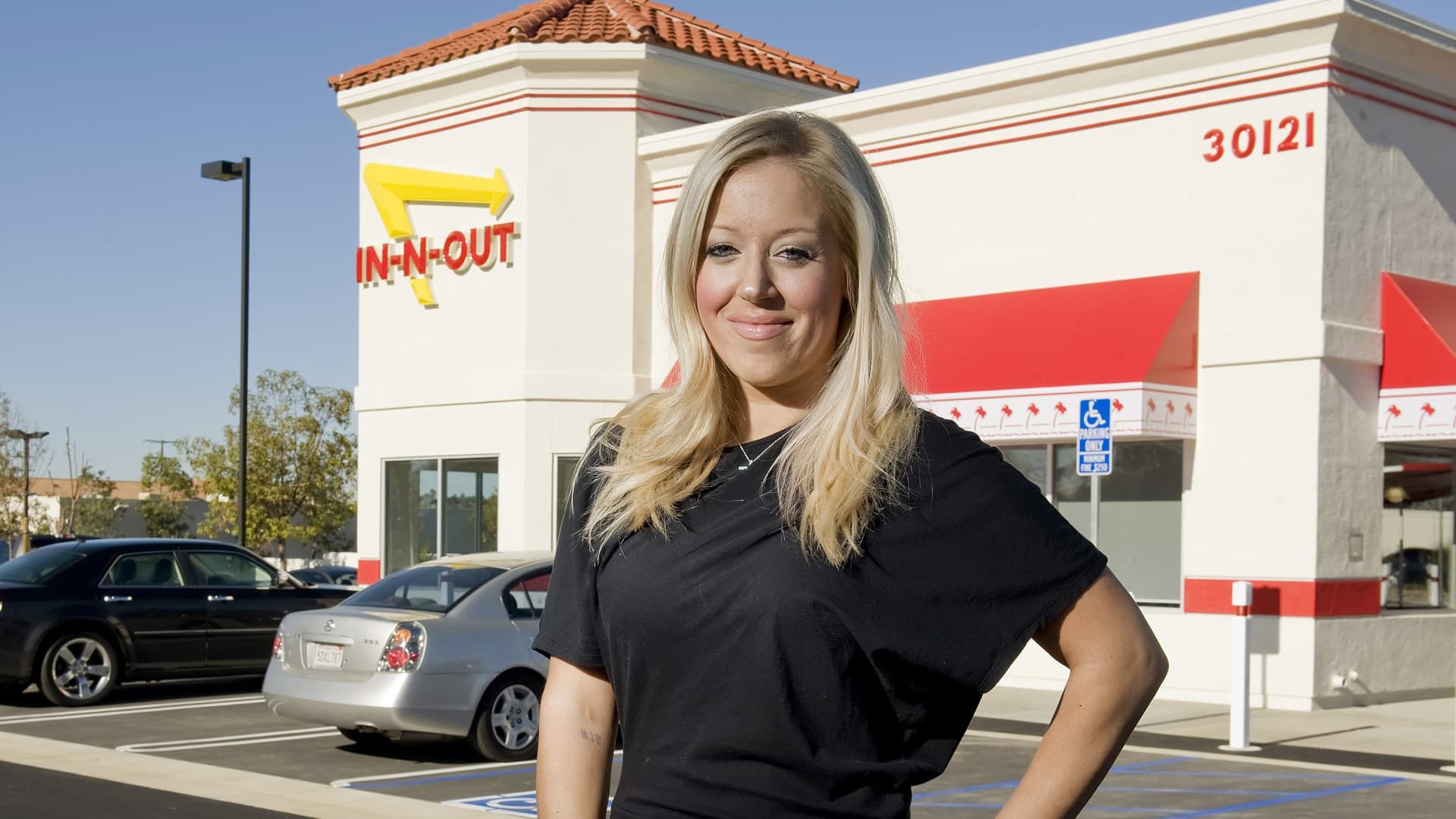The Shifting Sands of In-N-Out: A Golden State Icon Heads South?
The Siren Song of Tennessee: Why the CEO is Heading East
Lynsi Snyder, the billionaire heiress and CEO of In-N-Out Burger, has made a decision that has sent shockwaves through California. Her announcement to relocate to Franklin, Tennessee, a suburb of Nashville, has sparked a firestorm of debate. This move is not merely a personal whim but a strategic decision driven by a combination of personal preferences and business considerations.
California, known for its high taxes, stringent regulations, and complex business environment, has long been a challenging place to operate. Snyder’s decision to move to Tennessee, which offers a more business-friendly atmosphere with lower taxes and less restrictive regulations, is a clear indication of the challenges she faces in California. While she has not explicitly criticized California’s social or political climate, it is reasonable to infer that she finds Tennessee a more suitable place to raise her family.
In-N-Out’s eastward expansion plans are inextricably linked to Snyder’s move. The company is building a new corporate office in Franklin, Tennessee, which will serve as a hub for its growing operations in the southeastern United States. This strategic move allows Snyder to be closer to the action and directly oversee the expansion process.
In-N-Out’s Stance: “We’re Not Leaving California”
Amid the uproar, In-N-Out has been quick to reassure its California faithful that it’s not abandoning its home state. The company has issued statements emphasizing its commitment to maintaining its headquarters in California and continuing to serve its loyal customers. Snyder herself has reiterated this commitment, stating, “Anyone who knows me knows how often I talk about our beginnings and how our customers here…” This damage control is crucial for a brand whose identity is so closely intertwined with California’s culture.
The company’s strategy appears to be a dual-pronged approach: expanding its reach beyond California while simultaneously reaffirming its dedication to its roots. This is a delicate balancing act, as In-N-Out must navigate the potential for alienating its core customer base while pursuing growth opportunities in new markets.
However, the announcement of plans for a “co-headquarters” in Tennessee, coupled with reports suggesting a possible eventual relocation of the California HQ by 2030, continues to fuel skepticism and concern among some Californians. The mixed messages have created confusion and raised questions about the long-term implications of Snyder’s move.
The California Backlash: A Love Affair Tested
The news of Snyder’s departure has triggered a wave of reactions in California, ranging from disappointment to outright anger. For many Californians, In-N-Out is more than just a burger chain; it’s a symbol of the state’s culture, history, and identity. The prospect of the company’s CEO leaving the state feels like a personal affront, a betrayal of the values that In-N-Out supposedly represents.
Some Californians have expressed their displeasure by calling for boycotts of the burger chain, vowing to take their business elsewhere. While the effectiveness of these boycotts remains to be seen, they underscore the depth of emotion surrounding the issue. The backlash highlights the challenges that In-N-Out faces in maintaining its brand image while expanding beyond its California stronghold.
The controversy also raises broader questions about corporate responsibility and the relationship between companies and the communities they serve. Is it acceptable for a company to reap the benefits of operating in a particular state and then abandon it when faced with challenges? Or does a company have a right to pursue its own best interests, even if it means relocating to a more favorable business environment? These are complex questions with no easy answers, and the In-N-Out situation has sparked a heated debate about these issues.
The Road Ahead: Navigating Expansion and Loyalty
As In-N-Out embarks on its eastward expansion, it faces the daunting task of maintaining its brand identity and customer loyalty while adapting to new markets. The company’s success in California is largely attributed to its commitment to quality, consistency, and a simple menu. Replicating this formula in new locations will be crucial, but it will also require adapting to local tastes and preferences.
The company must also address the concerns of its California customers and reassure them that it remains committed to serving their needs. This could involve investing in its California operations, highlighting its contributions to the state’s economy, and emphasizing its long-term commitment to the community.
Ultimately, the future of In-N-Out will depend on its ability to strike a delicate balance between expansion and loyalty. The company must navigate the challenges of a changing business environment while remaining true to its roots and the values that have made it a beloved California institution. Snyder’s leadership will be critical in guiding the company through this transition and ensuring that In-N-Out continues to thrive in both its home state and its new markets.
A Brand Divided: The Enduring Legacy of a California Icon
The saga of Lynsi Snyder’s move to Tennessee and In-N-Out’s eastward expansion is a microcosm of the broader tensions facing California and its iconic businesses. As the state grapples with economic challenges and a changing political landscape, companies are increasingly weighing the costs and benefits of remaining in the Golden State. The In-N-Out situation serves as a reminder that even the most beloved brands are not immune to these pressures. Whether In-N-Out can successfully navigate this complex landscape and maintain its status as a California icon remains to be seen. The next few years will be a crucial test of its resilience, adaptability, and enduring appeal.

